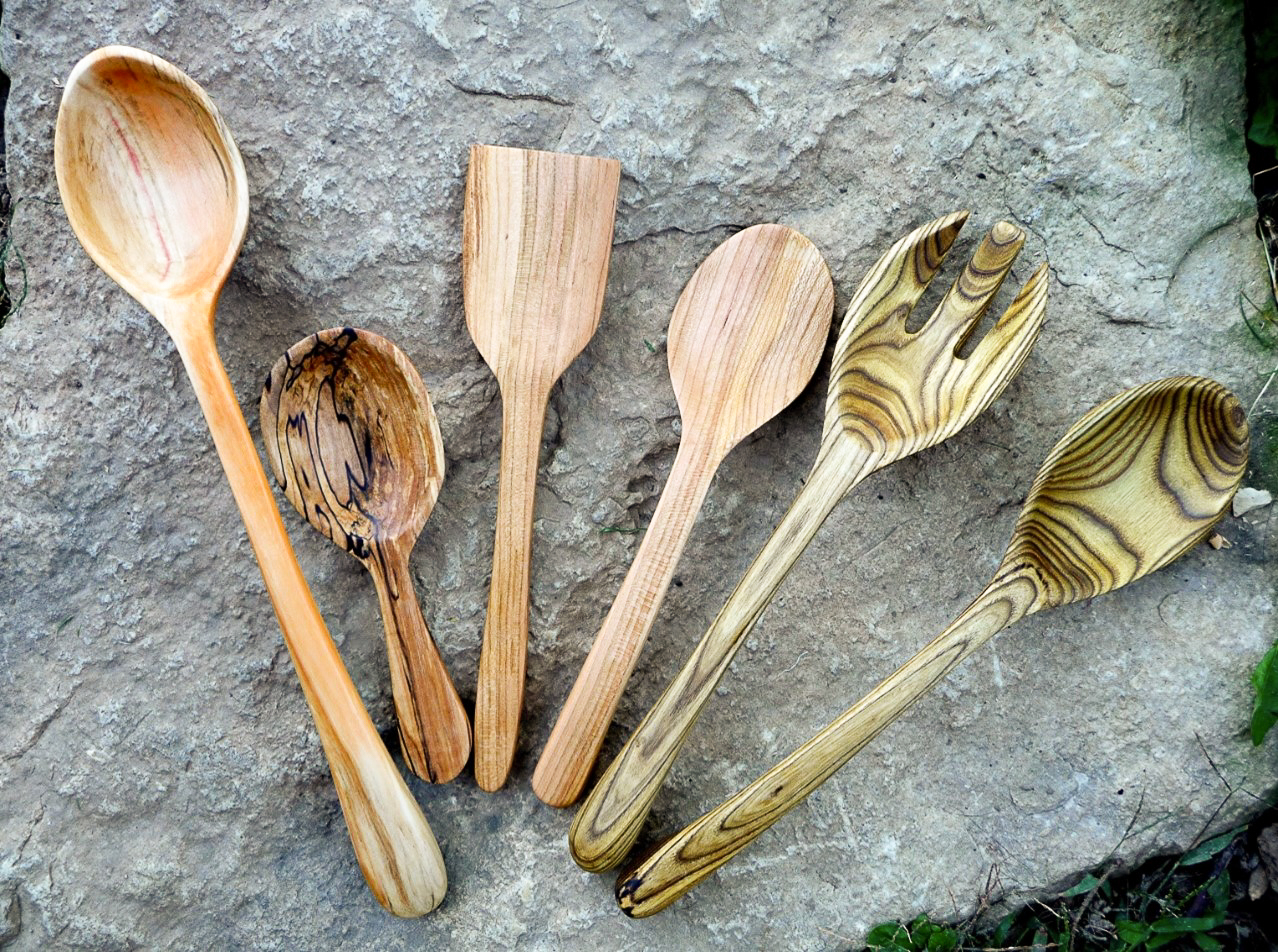Bjorn Bergman started spoon carving nine years ago at a monthly Carving Circle in his hometown of Viroqua, Wisconsin. “That first night I purchased a sloyd and hook knife, and have been at it since,” he said.
He shares that with spoon carving there is a simple connection to nature. “I love how the craft starts at a point where you have a whole tree, and you end up with a finished spoon that you can use for cooking or eating.”
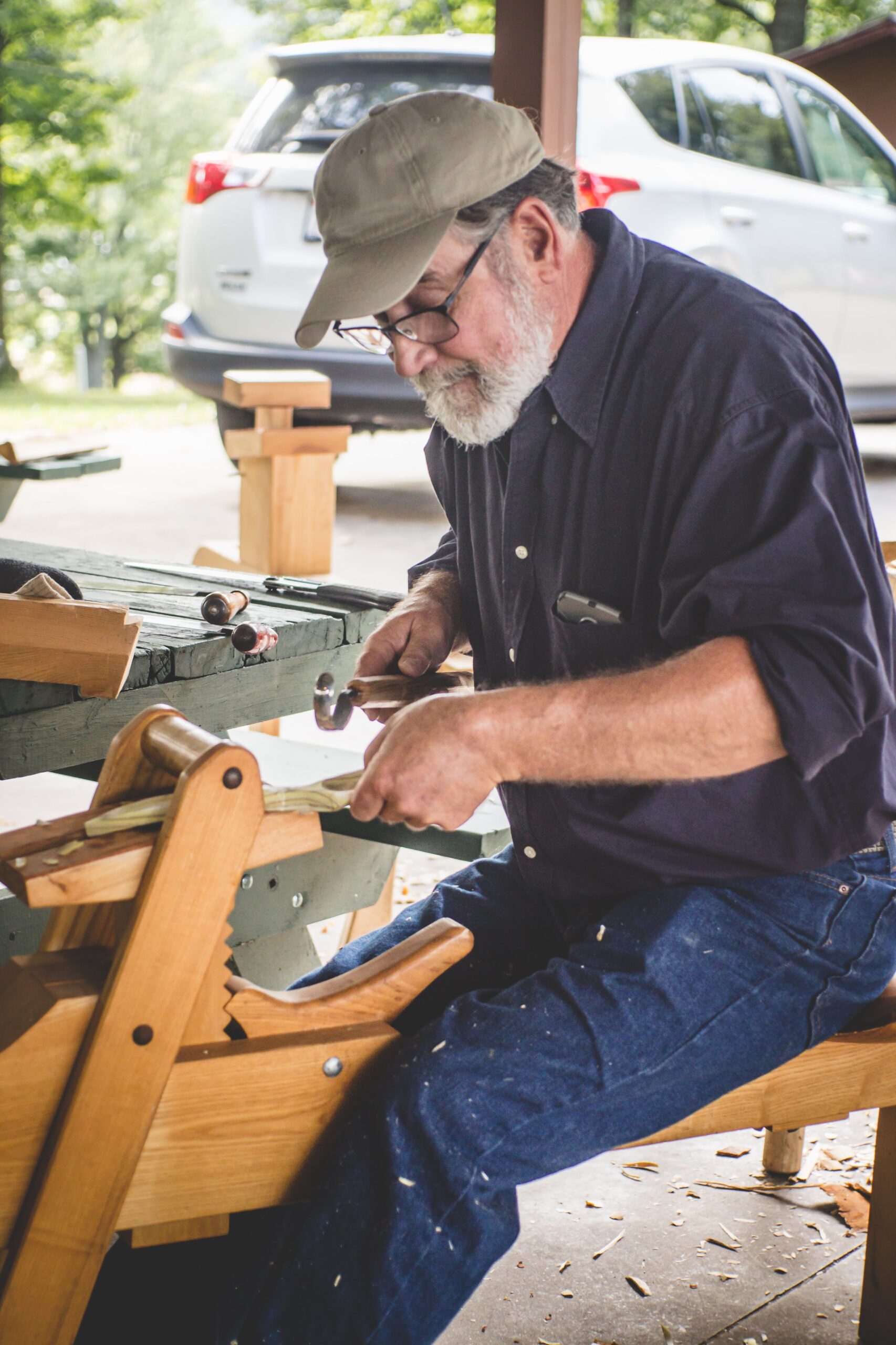
“It’s for utility and fun,” explained fellow Viroqua resident Tom Wheeler, a lifelong woodworker. “It’s reconnecting to using our hands,” he said.
Spoon carving is done with green wood, when it is freshly harvested and malleable for carving, he explained. This makes it distinctly different from wood carving, which is usually done with dry wood.
Wooden spoons include utility spatulas for cooking, baby spoons, and decorative pieces. These are often made of birch, and cherry but, according to Wheeler, even buckthorn can be used.
Carving Out a Community
After attending a spoon carving class at Milan Village Arts School in Minnesota in 2009, Wheeler and Terry Beck decided to create their own spoon carving gathering in the Driftless region.
Wheeler has a lifetime background in woodworking, including making bowls, carpentry and furniture and co-organizes the Driftless Spoon Gathering with Beck, a retired English professor from the University of Wisconsin-La Crosse and fellow spoon carver living in La Farge, Wisconsin.
“People come together and exchange ideas and share tools,” Beck said of the annual gathering, which draws about 40-60 people each year in La Farge.
“The Driftless Region is a great place for spoon carving because it is heavily wooded, providing a plentiful variety of fresh woods to carve and the topography attracts the kind of people who are interested in woodworking arts,” said Beck.
It is “home to many farmers, crafts people, back-to-the-landers, homeschoolers, tinkerers, and anti-consumerism sorts who appreciate wood and skilled hand work,” he said.
But Wheeler adds that this desire for people “finding real satisfaction in doing for themselves,” is not unique just of this region. “It is happening all over the world,” he said.
The 11th Annual Driftless Spoon Gathering was held September 8-10, 2023, in La Farge, and the event is open to spoon carvers and those interested in the craft. A beginners’ spoon carving class offers carving knives and wood to attendees to use, at no extra charge. The three-day event is a chance for attendees to carve spoons, talk carving and tools, share techniques, and trade or sell spoons or tools.
BJORN BERGMAN, SPOON CARVER“I love how the craft starts at a point where you have a whole tree, and you end up with a finished spoon that you can use for cooking or eating.”
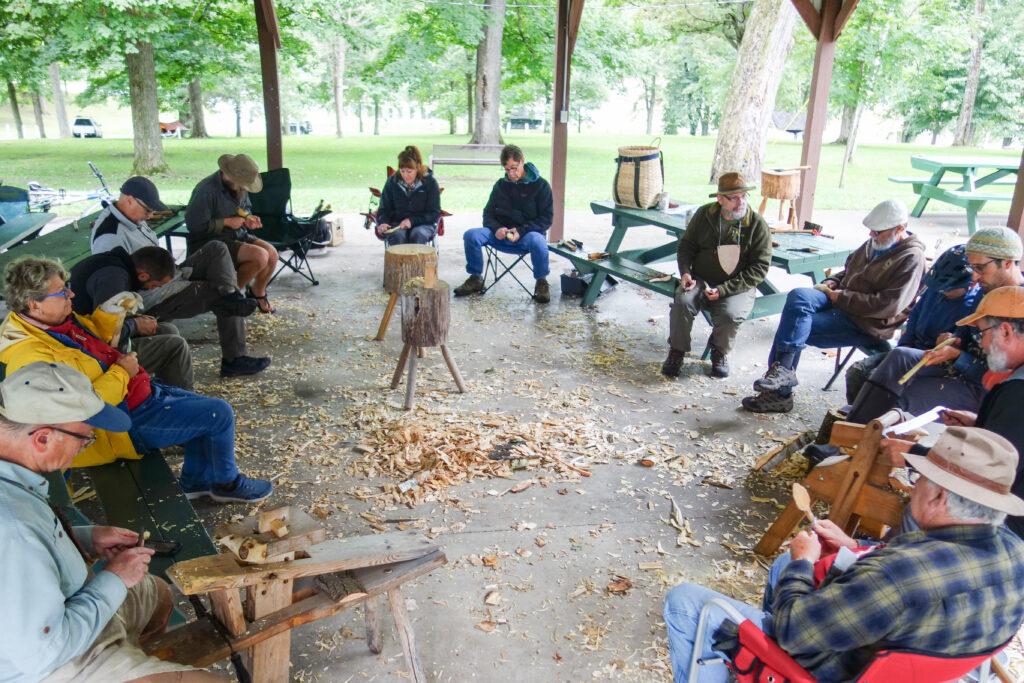
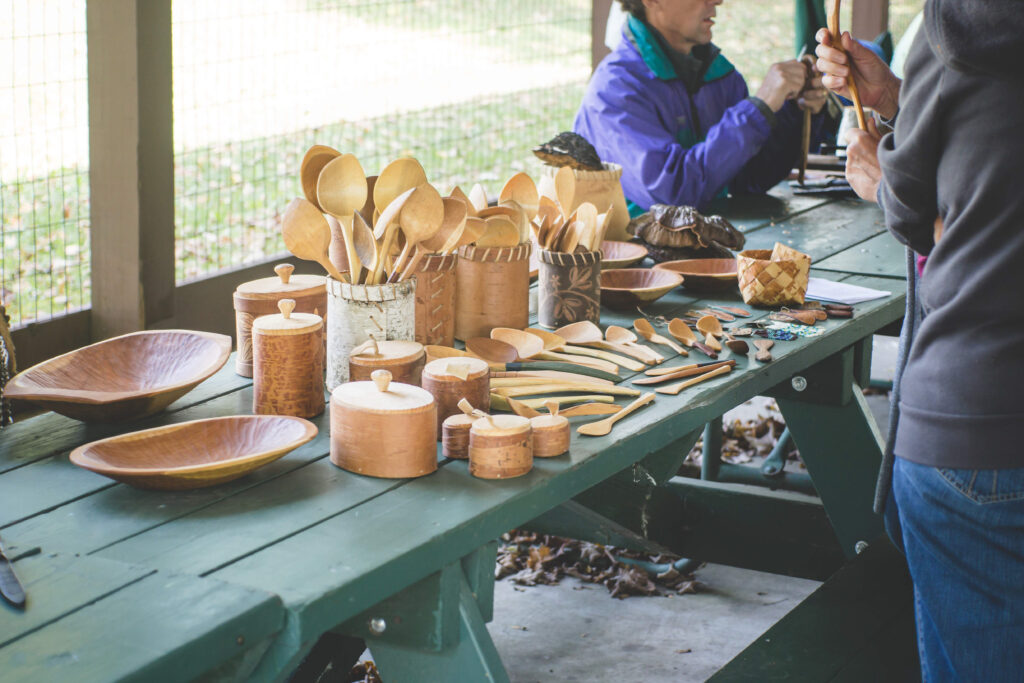
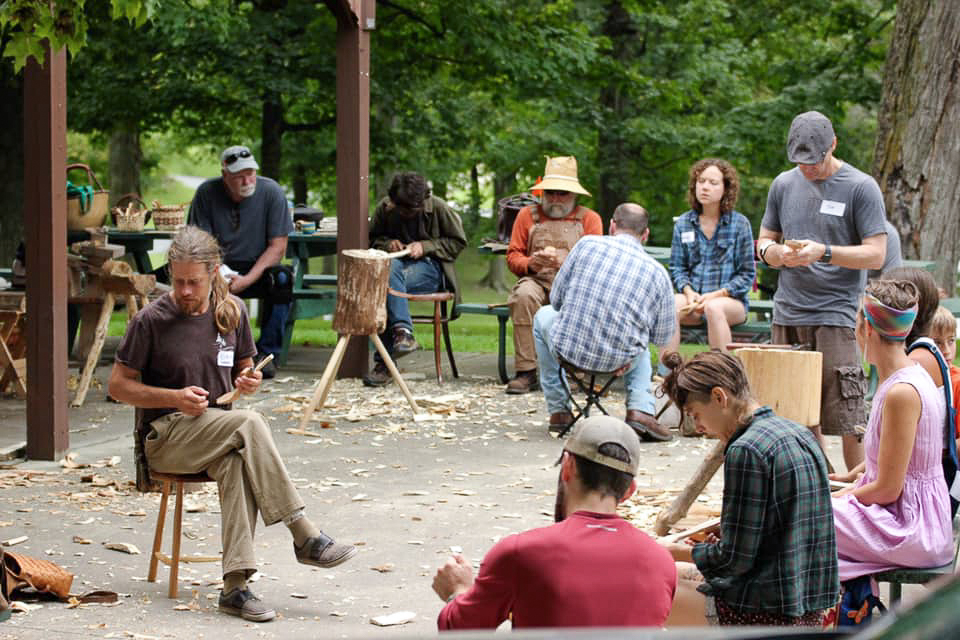
The event is hosted by the Driftless Folk School which offers community programs that focus on agriculture, land stewardship, natural history and traditional crafts and skills.
“We proposed the gathering as a Driftless Folk School event when we first dreamed it up in 2015 for help with publicity and registration,” explained Beck. Wheeler and Beck have served on various Driftless Folk School committees over the years, and it’s a relationship that provides connectivity and support.
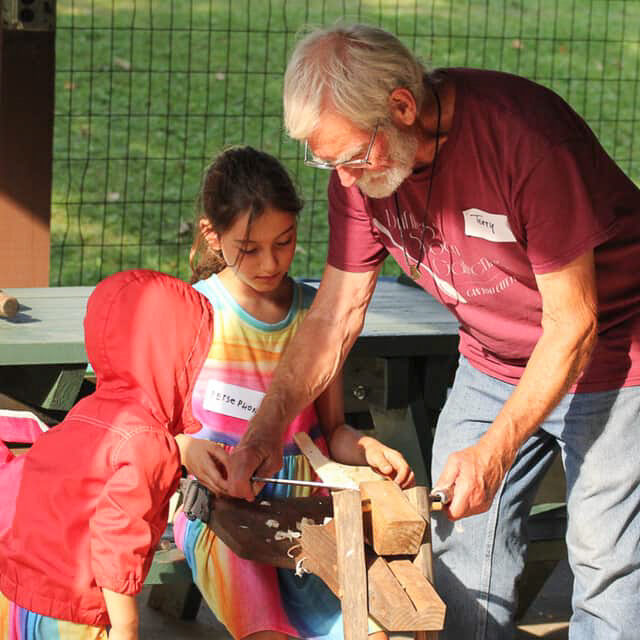
Spoonsful of Inspiration
Drawn into it through his love for wood working, Bergman shares the accessibility inherent in learning and practicing the craft: “I am not at a place in my life where I can set up a wood shop with expensive power tools. Spoon carving is a craft that I can do with a minimal amount of tools: sloyd, hook knife, hatchet, and sharpening equipment.”
When working with beginners, Bergman says that he tries to share tips that “might help speed up the learning curve and get them hooked on carving sooner.”
The beauty of the annual spoon carving gathering is to help all levels of carvers, according to organizers. “In my journey as a carver, I have learned an immense amount from other carvers and I feel like part of the culture around carving is sharing your tips and tricks with others,” said Bergman.
